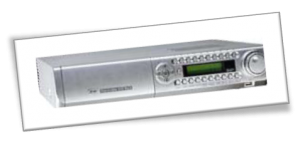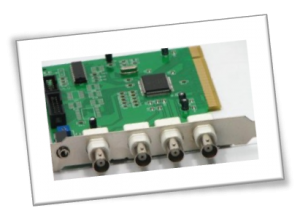DVR Cards or Stand-alone DVR’s?
Which Way to Go?
Seems straightforward? Well, it is not. It is like choosing between a 7-seated family car or a 2-seated sports car. Which one is better? It all depends on your needs. The same with a stand-alone DVR and a PC-based DVR card.
It is essential to understand the pros and cons of using a stand-alone DVR in comparison to a PC based DVR before making a choice, as your decision can greatly influence the functions and capabilities of your surveillance system in the long run.
Let’s examine this question, shall we?
What is a stand-alone DVR?
 A stand-alone DVR is essentially an all-in-one Digital Video Recorder which also has the operating software built in, therefore eliminating the need for a PC.
A stand-alone DVR is essentially an all-in-one Digital Video Recorder which also has the operating software built in, therefore eliminating the need for a PC.
It is essential to understand the pros and cons of using a stand-alone DVR in comparison to a PC based DVR before making a choice, as your decision can greatly influence the functions and capabilities of your surveillance system in the long run.
See the good points of a stand-alone DVR
The positive points regarding using a stand-alone DVR are that most stand-alone systems use their own Embedded Operating System which is usually non windows based.
The majority of these are Linux based systems which makes them much eaiser to maintain and to diagnose faults on than windows PC based DVR systems. Trouble shooting is also more straight forward than with the windows based DVR’s.
Also, the software is installed on the chip rather than on a PC hard disk drive, the processes are smoother, quicker and will not crash. As well as this increased performance and reliability, the systems are also easier to install. Because all the components are pre-installed on the stand-alone DVR unit, installation is simply a case of plug and play.
And see the downsides too
On the downside, a stand-alone DVR system is more tricky to expand due to the fact that the operating system is contained within the unit.
As a system, a stand-alone DVR is more expensive to purchase initially and ongoing maintenance can be pricey too. Because the motherboard is inbuilt any non-manageable faults can be expensive to fix and can often mean a complete renewal of the system.
Knowing all these facts, it’s time to examine the PC-based DVR system.
What is a DVR card?
 A DVR card, or PC card, is simply an additional chip which is used in any desktop PC. The system is usually Windows based and requires that you install the card and then install the operating software in order to set up the working DVR system.
A DVR card, or PC card, is simply an additional chip which is used in any desktop PC. The system is usually Windows based and requires that you install the card and then install the operating software in order to set up the working DVR system.
Benefits of PC-based DVR systems
For those that already own a PC, a DVR card can be a much cheaper way of setting up your security system.
Because the card is just a part of the PC, there are plenty of options for upgrading and expanding later on and it is fairly straightforward to integrate the device with other devices running through your PC.
Using a DVR card can give better resolution when used via remote viewing and is usually easier to use as part of a network than a stand-alone system.
However, all that glitters is not gold
The downsides of choosing a DVR card are mostly related to the usual problems associated with windows based PC’s.
Issues with PC reliability are a concern as crashes within the PC will result in a loss of security data and of course windows PC’s can be very vulnerable to attacks by viruses, worms and other security compromising bugs. Trouble shooting issues with the card can be tricky and conflicts with other software installed on the PC can cause crashes and system freezes at the most inopportune moments.
Many of the cheap DVR cards are manufactured in developing countries, so there are concerns over the longevity of the product and the reliability of any after sales support.
The verdict
When deciding whether to go for a stand-alone DVR or a DVR card for a PC, buyers should consider carefully how they intend to use the surveillance system and how important the systems reliability is.
Whilst the initial outlay for a DVR card may be less, the issues and potential problems which lie ahead may mean your investment is wasted. For anyone wanting to choose the most reliable, easy to install and value for money system then a stand-alone DVR system is the clear choice.
Learn how to install CCTV systems
Installing a CCTV system wants expertise and practise. You can jumpstart with us in an intensive practical course. Learn about our CCTV Installation and Maintenance Courses and get into the industry.
